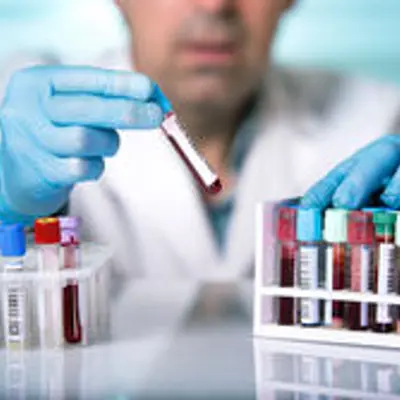Fetal Blood Type Screening
Overview
Fetal Blood Type Screening is a new, non-invasive prenatal screening test that uses cell-free fetal DNA from the pregnant individual’s blood to determine the RhD status—and in some cases, other red blood cell antigens—of the fetus. This innovative test is being introduced across Ontario in 2026 as part of a broader effort to personalize prenatal care and help guide treatment and monitoring for RhD-negative and alloimmunized pregnancies.
Why This Matters
RhD incompatibility can lead to hemolytic disease of the fetus and newborn (HDFN), a potentially life-threatening condition. Historically, all RhD-negative pregnant individuals received RhD immune globulin (RhIG) prophylactically, even though up to 40% of these pregnancies involve an RhD-negative fetus and are not at risk. Fetal Blood Type Screening allows for more precise identification of at-risk pregnancies, reducing unnecessary interventions and ensuring that prenatal care is better tailored to those who need it.
BORN's Role
BORN Ontario, through its program Prenatal Screening Ontario (PSO), is leading the implementation of Fetal Blood Type Screening across the province. PSO has coordinated the development of clinical flowcharts, test information guides, and educational resources for providers and patients. A multidisciplinary working group—including maternal-fetal medicine specialists, hematopathologists, family physicians, midwives and patient partners—has guided the rollout to ensure evidence-based and equitable care.
Impact and Benefits

For Patients
- Personalized Care: Individuals who are RhD-negative or alloimmunized receive care tailored to their pregnancy’s actual risk.
- Reduced Exposure to Blood Products: Avoids unnecessary RhIG injections when the fetus is RhD-negative.
- Lower Anxiety: Alloimmunized patients can be reassured when the fetus does not carry the antigen, reducing stress and the need for intensive monitoring.
- Non-Invasive Testing: Uses a simple blood sample from the pregnant person, avoiding invasive procedures like amniocentesis.

For Providers
- Improved Clinical Decision-Making: Enables targeted use of RhIG and monitoring approaches based on fetal antigen status.
- Streamlined Workflow: Clear ordering processes and support from Prenatal Screening Ontario simplify integration into practice.
- Enhanced Communication: Providers can offer more accurate counselling to patients about risks and management options.
- Evidence-Based Practice: Aligns with current guidelines and reduces unnecessary interventions.

For Healthcare
- Resource Optimization: Conserves RhIG, a limited and costly blood product.
- Cost-Effective Care: Reduces unnecessary treatments and monitoring, lowering overall healthcare costs.
- Data-Driven Insights: BORN Ontario’s data collection supports ongoing evaluation and quality improvement.
- Equity in Access: Province-wide implementation ensures consistent availability across diverse populations and regions.
Eligibility and Access
Fetal Blood Type Screening will be available to:
- RhD-negative pregnant individuals (who have not developed anti-D antibodies) to determine fetal RhD status.
- Pregnancies affected by specific red blood cell antibodies (anti-D, anti-C, anti-c, anti-E, and/or anti-K) to assess fetal antigen status.
Testing is non-invasive and requires a maternal blood sample from the pregnant person. Test requisition and support materials are available through Prenatal Screening Ontario.
Did You Know...
Up to 40% of RhD-negative pregnancies involve a fetus who is also RhD-negative—meaning RhIG treatment may be unnecessary.
Stay Informed
-
Subscribe to PSO updates to:
-
Learn how to order these tests.
-
Receive implementation updates.
-
Access educational resources for providers and patients.
-
Contact Us
BORN Ontario
401 Smyth Rd
Ottawa, ON K1H 8L1
Help Desk
BIS · CARTR Plus · MIS · NTQA
FAQ · Email Us
1-855-881-BORN (2676)





